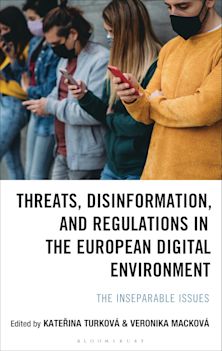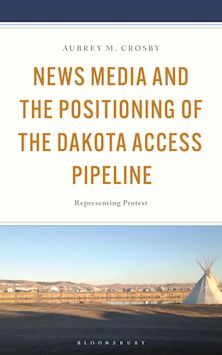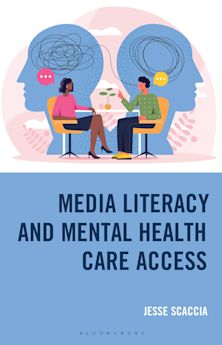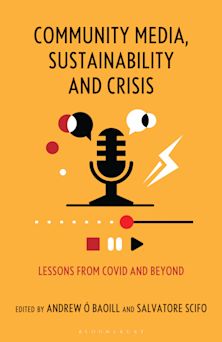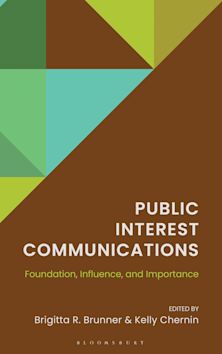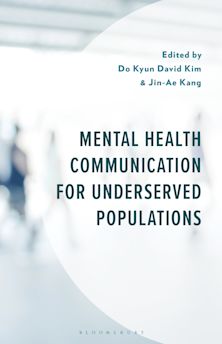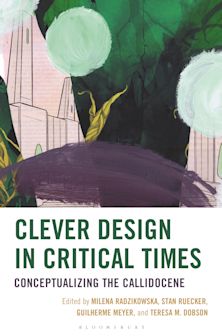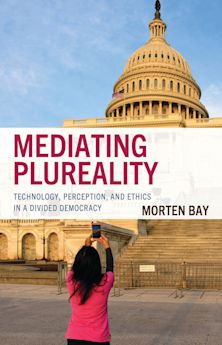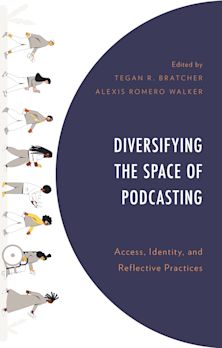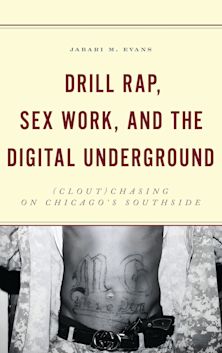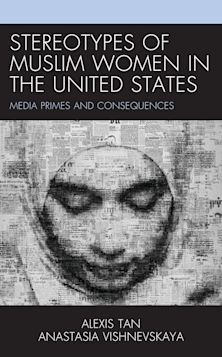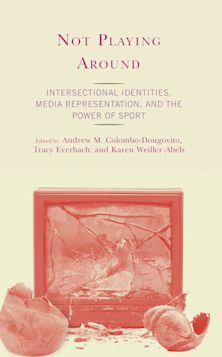- Home
- ACADEMIC
- Communication Studies
- Media and Society
- Free Speech and Neoliberalism
Payment for this pre-order will be taken when the item becomes available
- Delivery and returns info
-
Free US delivery on orders $35 or over
You must sign in to add this item to your wishlist. Please sign in or create an account
Description
In this book, Asbjørn Grønstad challenges us to reconceptualize the notion of free speech. Focusing on the domains of cultural production, aesthetics, and education, Grønstad argues that neoliberalism currently poses the greatest threat to our freedom of expression.
Crucially, the book argues that freedom of speech should no longer be considered merely as parrhesia - understood as the license to offend - but also as isegoria, the equal right to speak. The latter denotes the original meaning of free speech, Grønstad posits, and should be restored as the conceptual ambit of the term, despite being largely overlooked after Greek Antiquity.
Through a multi-faceted engagement with cultural works and discourses spanning both genre and historical period which grapple with issues of free speech, censorship, and neoliberal politics, this book highlights how art and aesthetics represent a particular case of isegoria, and more broadly, how neoliberal rationality operates to delimit the space of the sayable and the expressible.
Table of Contents
Acknowledgements
Introduction: From Parrhesia to Isegoria
1. Reclaiming Isegoria
2. The War on Imaginative Speech
3. Art and Justice in the Age of Neoliberalism
4. Neoliberal Epistemology, Censorial Imaginaries: Alphaville and Fahrenheit 451
5. The Dividual Self in Severance
6. Neoliberalism as Burlesque: The Cinema of Yorgos Lanthimos
7. “The Academy in Peril:” Free Speech and the Future of Critical Thinking
Postscript: Requiem for the Arts?
Bibliography
About the Author
Index
Product details

| Published | May 14 2026 |
|---|---|
| Format | Hardback |
| Edition | 1st |
| Extent | 248 |
| ISBN | 9798765167823 |
| Imprint | Bloomsbury Academic |
| Dimensions | 9 x 6 inches |
| Publisher | Bloomsbury Publishing |
About the contributors
Reviews
-
Free speech is never free. It always comes at a cost, and someone always has to pay. In our late neoliberal era, that someone is usually us. In Free Speech and Neoliberalism: Art, Culture, Education, Asbjørn Skarsvåg Grønstad argues that because of 'the shrinking of the horizon of the sayable within neoliberal culture', there is a pressing need to reconceptualize our notion of freedom of speech. He is right. Against the censorial imagination, for Grønstad there is hope in art and culture, and especially hope in reviving and nurturing the practice of parrhesia (the license to offend as a courageous speaking truth to power) but even more so and necessarily in the principle of isegoria (the equal right to speak). To this end, Grønstad mobilizes Alphaville, Fahrenheit 45I, the performance art of Jingyi Wang, the TV series Severance, and the films of Yorgos Lanthimos as articulations of isegoria. For him, they offer profound ethical, epistemological, and political potentialities. More than this, isegoria offers an antidote to our waning faith of higher education's commitment to critical thinking, judiciousness, and education; and perhaps even to the demise of democracy itself! We can only hope…
Marquard Smith, Academic Director, AHRC's London Arts & Humanities Doctoral Training Partnership, UCL, London, UK
-
Combining a historical and theoretical approach, this original study makes a significant contribution to our understanding of the linkage between free speech and neoliberalism. Asbjørn Grønstad argues convincingly that freedom of speech can no longer be considered merely as the license to offend but also needs to be understood as 'isegoria, the equal right to speak.' Analyzing important cinematic, literary, theatrical and televisional cases of isegoria, Grønstad shows how, employing a wide range of aesthetic means, these works negotiate and contest pressing issues of censorship and neoliberal politics. This timely and powerfully insightful book is a major work that is relevant across disciplines.
Jakob Lothe, Professor of English, University of Oslo, Norway, and Author of Memory and Narrative Ethics: Holocaust Testimony, Fiction, and Film (2025)













